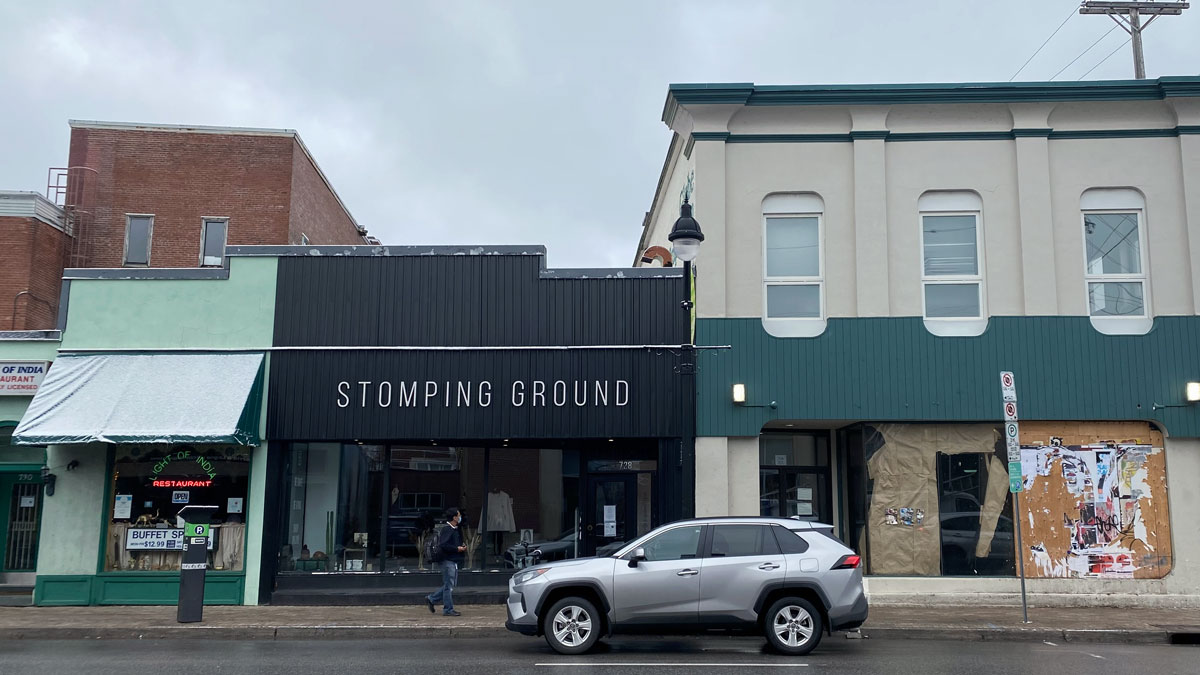If you’ve walked along Bank Street recently, you’ve probably noticed the difference — the lack of office workers and foot traffic, vanishing storefronts, the “For Lease” signs in the windows of the small businesses that once lined the streets.
COVID-19 has profoundly changed the way Canadians shop. Since the beginning of the pandemic, there has been a significant increase in online shopping and food delivery services. To the detriment of small, independent businesses, which have had to close their doors for months this year.
While Ottawa remains in the ‘orange restrict zone,’ allowing small businesses to stay open with restrictions for bars, restaurants, fitness centres, and movie theatres. many are still avoiding in-store shopping.
Almost 50 per cent of consumers say they have been shopping online more, and major online businesses such as Amazon, UberEats, and Instacart are growing rapidly while local businesses are struggling.
Major corporations have a headstart because they have an online presence and reputation. Many Canadians favour Amazon because it’s simple to use and shipping is often free.
However, some people — myself included — are reluctant to use Amazon because of its history of unsafe working conditions and inadequate pay, particularly in the U.S.
All of this makes it especially important to shop locally throughout the holidays. This is the pivotal time of year for small businesses. Almost 40 per cent of annual sales happen from Black Friday to the end of December.
According to the Canadian Federation of Independent Business, one in seven retailers are at risk of closure because of the pandemic. The CFIB also found that only a third of small businesses now offer online sales, while one in five say they are increasingly dependent on online sales to survive. At the same time, a quarter of those businesses say they are struggling to see any revenue from online sales.
Luckily, in Ottawa, shopping in person, while challenging, is still possible. All businesses must comply with the municipal COVID-19 safety protocols, which include: supplying hand sanitizer to customers, enforcing the mandatory mask bylaw and limiting the number of people inside depending on store capacity. Beyond mandatory safety protocols, in-person holiday shopping can be made easier by opting for a curbside pick-up option.
“Holiday shopping is not going to be viewed as a fun experience this season, but rather as a task to be completed quickly, efficiently and safely as possible,” Marty Weintraub, the national retail leader at Deloitte Canada, said in a recent news release.
Online shopping remains the easiest route for consumers who want to stay safe. Across Canada, there have been numerous new virtual venues open up. Launched by the provincial government, supportontariomade.ca is a catalog website of Ontario-made products, and each posting has a direct link to a business.
Goodlocal.ca is a similar website launched by two Winnipeg small business owners. It has a primary focus on Manitoba-based retailers and is far easier to navigate. Etsy, although not a local company, is one of the biggest and most established online market places where you can search small businesses at once for a particular item.
The quirk and charm that small businesses bring to Ottawa streets are at serious risk. Right now, small businesses have the odds stacked against them. But being a conscientious consumer and taking the extra — but easy — step of ensuring you are shopping locally this year could make all the difference for small and independent businesses.




